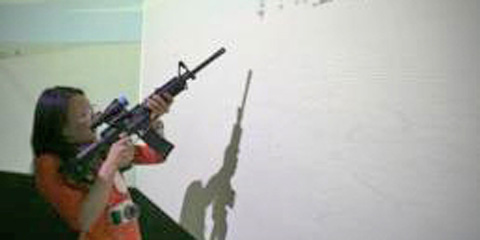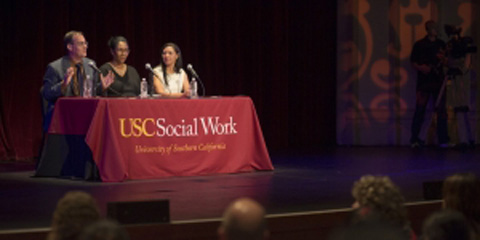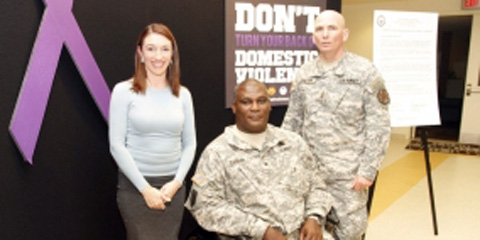News Archive
Opinion
-

USC Master of Social Work student Amanda Cockrell comes from a family with a history of helping others.
Her grandmother helped introduce family planning in West Africa, opening clinics and delivery centers while teaching people about pregnancy and contraception. Cockrell’s mother continues to run one of the clinics, offering vaccinations, surgeries and general treatment for the people of Dakar and doing her best never to turn down anyone who cannot afford care. Cockrell wants to continue this legacy of helping people in need and bringing awareness to their plights.
-

The last time I visited Tacloban City in the Philippines was 2007. I stayed with a local family who warmly welcomed me into their lives. They lived in abject poverty in a seaside shanty town of plywood and corrugated steel.
-

If you ask Kimberly Finney to list her accomplishments, you’d be hard-pressed to get a response—not because there haven’t been noteworthy moments in the retired U.S. Air Force officer’s career, but because that’s not her style.
“It’s just part of my training. If there’s something to be done, you just do it,” said Finney, a clinical psychologist and clinical associate professor with the USC School of Social Work. “I very rarely take time to pause to look at what I’m doing or what I’ve done until someone points it out to me.”
Luckily, someone has pointed it out.
-

For Shawn Cervantes, going back to school began as a personal desire to help her family, but it has since grown into a drive to change her community.
An Army wife for 25 years, Cervantes’ main role was caring for her three children during her husband’s multiple deployments. It was his last deployment in 2005—when his vehicle was hit by an improvised explosive device—that led her back into the classroom.
“When he came home, he wasn’t interested in getting any type of care. He was an old Army soldier,” she said.
-

Students, staff and alumni from the University of Southern California and University of California, Los Angeles, recently toured the Marine Corps Air Ground Combat Center in Twentynine Palms, Calif.
Tour participants, most of them graduate students looking to pursue a career in social work, public health or counseling, expressed interest in touring the Combat Center as many of them hope to have a career affiliated with helping military personnel.
-

Leslie Wind, clinical associate professor and associate dean of academic programs at the USC School of Social Work, has received a Lifetime Achievement Award from the National Association of Social Workers California Chapter’s Region F for decades of work dedicated to improving lives all over the United States.
-

“I want to shake your assumptions about why the system works as it does.”
Those are the words of former U.S. Secretary of Labor Robert Reich early in the documentary film “Inequality for All,” which was shown at the USC School of Social Work as part of the university’s Visions and Voices arts and humanities initiative.
-

For more than a decade, a small percentage of Americans has volunteered to join the military and take part in the nation’s longest-running wars, but the effects of combat and the transitions home impact more than just that 1 percent.
Families, friends and entire communities have been welcoming home service members whose wartime experiences can span the gamut of physical and psychological reactions, including post-traumatic stress disorder.
-

A single mother of two separated from her husband, Amanda Tenorio thought she found her “Prince Charming” – a new man who immediately swept her off her feet. Little did she know that the next 13 months would be filled with pain, abuse, hospitalizations and more at the hands of an abusive boyfriend.
-

The tragedy in Sandy Hook has become a watershed moment that's changing the way we perceive our society. How could innocent young children be killed so senselessly in a seemingly safe school and quiet community?
This atrocity, along with the dozens of highly publicized mass homicides—such as Columbine—seen in the past decades worldwide have raised questions about the schools our children attend. Are they safe from inside and outside threats? What can be done to make schools safer?